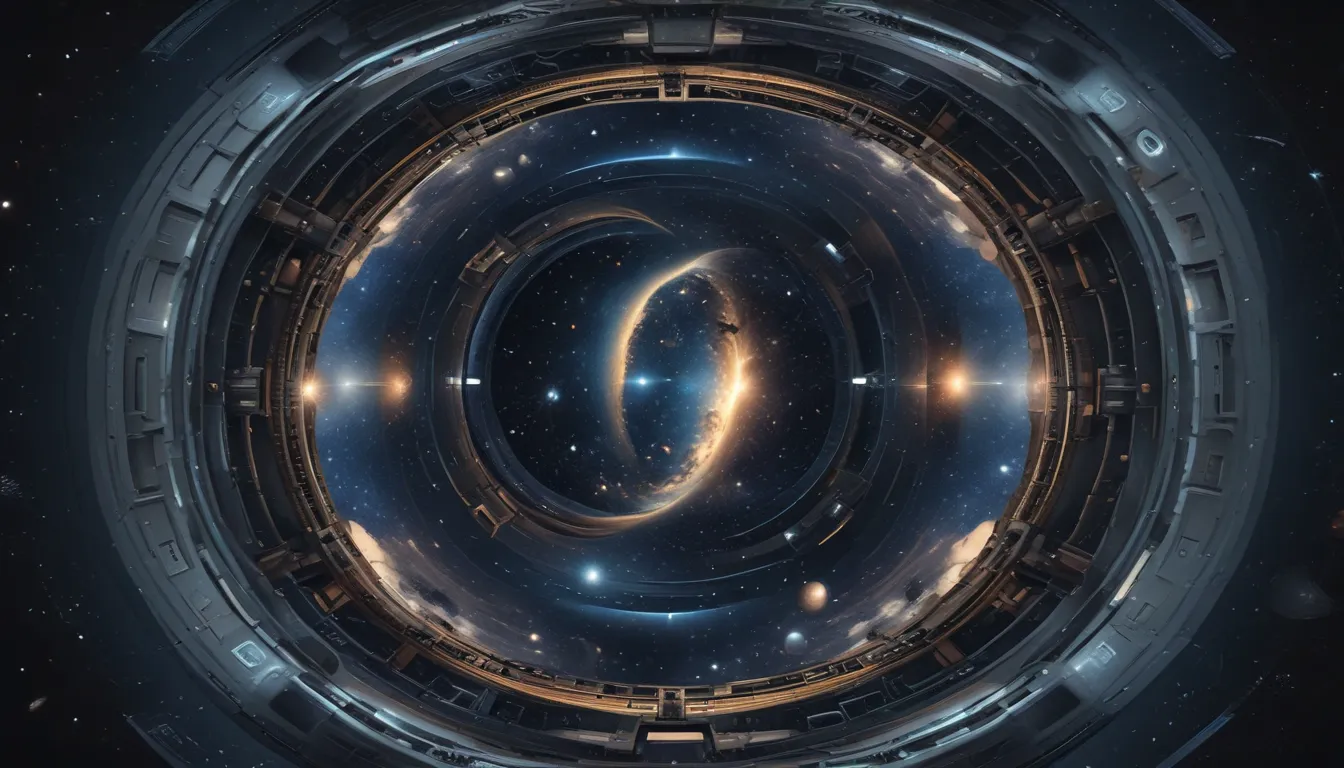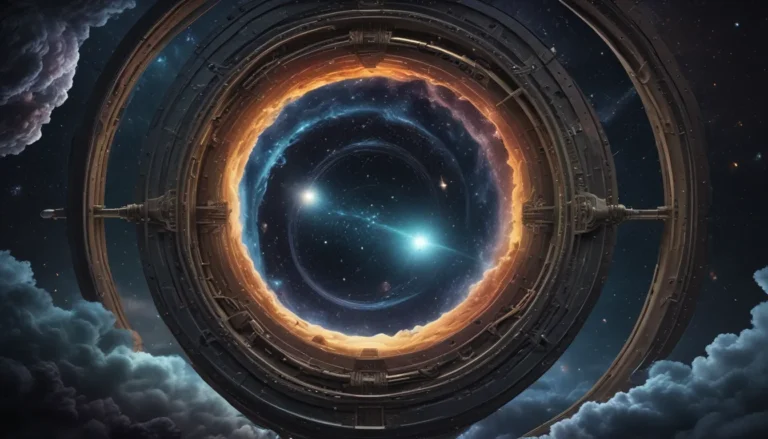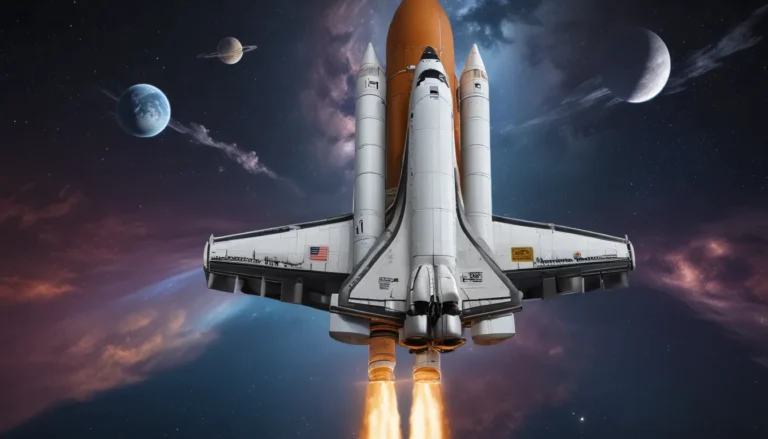The pictures we use in our articles might not show exactly what the words say. We choose these pictures to make you interested in reading more. The pictures work together with the words but don’t take their place. The words still tell you the important facts.
As humans, we have always been intrigued by the mysteries of the universe. Scientists and researchers have developed remarkable space instrumentation to study and explore the vastness of space, providing us with unprecedented insights into the cosmos. In this article, we will embark on a cosmic journey to uncover 15 astounding facts about space instrumentation that will leave you in awe.
Unveiling the World of Space Instrumentation
Space instrumentation serves as a cosmic toolkit, equipping scientists with advanced gadgets for space adventures. From telescopes to spectrometers, these instruments act as detectives, unraveling the secrets of the universe and solving a never-ending cosmic mystery.
The Vital Role of Space Instrumentation in Exploration
Space instrumentation is essential for enabling us to explore and understand the universe. These tools capture data, measure various physical phenomena, and transmit valuable information back to Earth, contributing significantly to our knowledge of space.
Revolutionizing Space Exploration: The Hubble Space Telescope
The launch of the Hubble Space Telescope in 1990 transformed space instrumentation. It provided breathtaking images of distant galaxies and celestial objects, revolutionizing our understanding of the universe.
Studying Exoplanets with Advanced Spectroscopy
Advanced spectroscopy instruments have allowed scientists to detect and study thousands of exoplanets orbiting stars outside our solar system, opening new possibilities for understanding extraterrestrial life.
Tracking and Analyzing Asteroids with Precision
Innovative radar systems and telescopes equipped with specialized sensors enable scientists to track and analyze asteroids approaching Earth, enhancing our understanding of their composition and potential impact.
Unveiling Mysteries on Mars: The Mars Rover Curiosity
Equipped with sophisticated instruments, the Mars Rover Curiosity explores the Martian surface, gathering valuable data about the environment and searching for signs of life, both past and present.
Illuminating Cosmic Radiation with Space Instrumentation
Through particle detectors and spectrometers, scientists measure and analyze cosmic radiation from sources like distant supernovae, offering insights into the fundamental processes shaping the universe.
The Significance of Telescopes in Space Instrumentation
Telescopes, whether on Earth or in space, play a crucial role in capturing electromagnetic radiation from celestial objects. They allow us to observe galaxies, stars, and cosmic phenomena, unraveling the mysteries of the universe.
Discovering Gravitational Waves: A New Window to the Cosmos
Technological instruments like those in the Laser Interferometer Gravitational-Wave Observatory (LIGO) have revolutionized astrophysics by detecting gravitational waves, providing a new perspective on the cosmos.
Understanding the Sun with Specialized Instruments
Solar telescopes and satellites help scientists study the sun's activity, magnetic fields, and solar flares. This knowledge is vital for comprehending space weather and its potential impact on Earth.
Seeking Dark Matter Clues with Innovative Instruments
Instruments like the Alpha Magnetic Spectrometer (AMS) on the International Space Station aim to detect cosmic rays and identify dark matter signatures, contributing to our quest to unravel the universe's mysteries.
Shedding Light on Cosmic Microwave Background Radiation
Specialized instruments like the Planck satellite study Cosmic Microwave Background (CMB) radiation, offering insights into the early universe's origins and evolution.
Exploring Atmospheric Conditions on Planets with Space Instrumentation
Spectrometers and gas analyzers help scientists study planetary atmospheres within and beyond our solar system, determining the potential habitability of other worlds.
Unveiling Gravitational Lenses with Advanced Instruments
Specialized instruments identify and analyze gravitational lensing phenomena, allowing astronomers to study distant galaxies and gain new insights into the universe's nature.
Decoding Comet Composition with Spacecraft Missions
Missions equipped with spectrometers and dust analyzers provide valuable data on comet composition, aiding our understanding of these icy bodies and the early solar system's formation.
Enhancing Galactic Exploration with High-Resolution Imaging
Advanced imaging instruments, like the upcoming James Webb Space Telescope (JWST), promise detailed images of galaxies billions of light-years away, offering insights into galactic formation and evolution.
Embracing the Advances in Space Instrumentation
In conclusion, space instrumentation continues to push boundaries and deepen our understanding of the cosmos. From capturing stunning images to analyzing celestial bodies, these tools fuel our curiosity and drive us to explore further into the mysteries of the universe.
FAQs: Exploring Space Instrumentation
-
What is space instrumentation?
Space instrumentation refers to tools and devices designed to collect data and measurements in outer space, providing invaluable insights about celestial bodies. -
What are some examples of space instrumentation?
Examples include telescopes, spectrometers, satellites, rovers, and probes, equipped with sensors and cameras to observe and study objects in space. -
How do space instruments work?
Space instruments detect and analyze various radiation types emitted by celestial objects, gathering data transmitted to Earth for interpretation and insights into the universe. -
What is the importance of space instrumentation?
It is vital for advancing our understanding of the universe, aiding exploration of galaxies, planetary atmospheres, the origins of stars and systems, and the search for extraterrestrial life. -
How do space instruments contribute to scientific discoveries?
By enabling groundbreaking discoveries like new exoplanet detections and gravitational wave observations, space instruments provide crucial evidence and observations, expanding our knowledge of the universe.
Embark on a cosmic journey with space instrumentation, opening up a realm of possibilities for exploration and discovery. Let us continue to marvel at the wonders of the universe, fueled by the incredible advancements in space technology that deepen our understanding of the cosmos.






